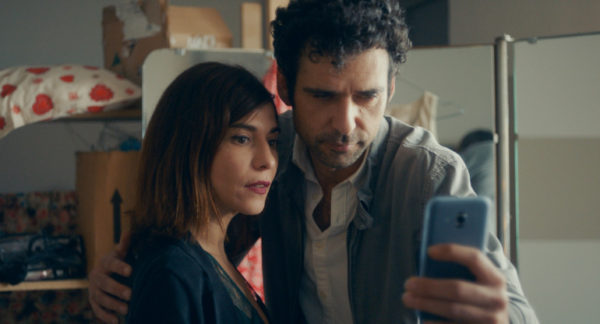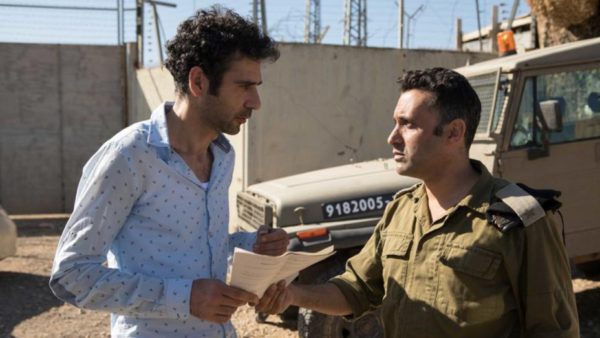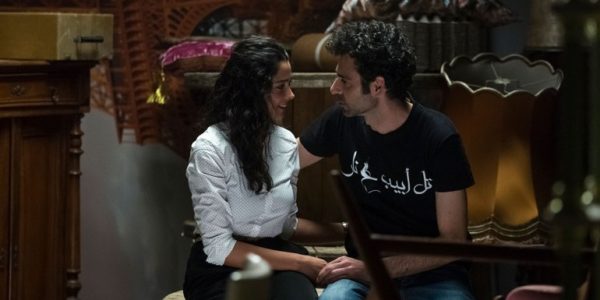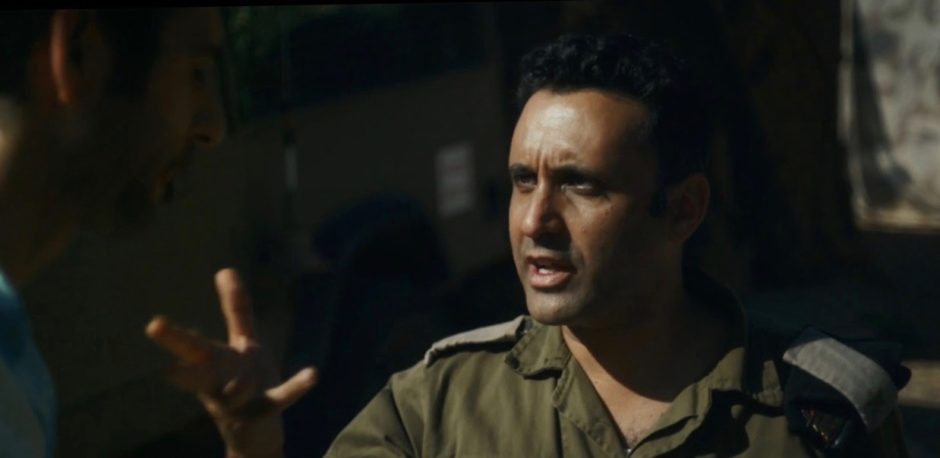The Arab-Israeli conflict is no laughing matter. But in Tel Aviv On Fire, which will be screened by the Toronto Jewish Film Festival on May 2 and May 4, Sameh Zoabi, a Palestinian director, breaks this mould by means of black humor, using Israel’s long-running dispute with the Palestinians as a source of biting satire.
As Charlie Chaplin once memorably said, “To truly laugh, you must be able to take your pain and play with it.”
The film takes its name from an Arab soap opera being cranked out in the West Bank city of Ramallah, the headquarters of the Palestinian Authority. The show is set in Tel Aviv on the eve of the 1967 Six Day War. Tala (Lubna Azabal), a Palestinian, plays Rachel, an Israeli Jewish woman who’s supposed to seduce Karim (Yousef Sweid), a Palestinian who portrays Yehuda, an Israeli general. Rachel, a spy, is expected to extract military secrets from Yehuda.

As Tala and Karim rehearse their lines, Salam (Kais Nashif), the Hebrew dialogue coach, interjects to politely inform them that they’re misusing Hebrew words. Salam’s vigilance impresses his uncle, Bassam (Nadim Sawalha), the show runner. He promotes Salam to scriptwriter, even though Salam has never written a single screenplay.
A mild-mannered Palestinian resident of the predominately Arab-inhabited eastern half of Jerusalem, Salam must pass through an Israeli military checkpoint to reach the studio in Ramallah where Tel Aviv On Fire is being filmed. Like all Palestinians entering the Israeli-occupied West Bank through a checkpoint, he must submit to rigorous questioning by heavily-armed Israeli soldiers.
Crossing the checkpoint one day, Salam is ordered out of his car to report to the Israeli commander, Assi (Yaniv Biton). He, along with his wife, are fans of Tel Aviv On Fire. They chat about the show and strike up a friendly relationship. The next time Salam goes through the checkpoint, Assi not only takes the liberty of critiquing the script, but offers him suggestions for enhancing its appeal to a Jewish Israeli audience. Salam professes to be impressed by Assi’s suggestions. Flattered by his comments, Assi asks a soldier to take a photograph of himself and Salam.

Being a novice in the business, Salam is basically a scavenger, expropriating dialogue wherever he can find it. As he sits in an outdoor cafe sipping coffee, he overhears a conversation between a young Palestinian couple and jots down their immortal words for future reference.
On his next visit with Assi, Salam wrings yet more advice from him in exchange for a plate of hummus. Salam whips up the concoction from an expired can of hummus, and Assi loves it. Some connoisseur!
Assi, being a border police officer, is accustomed to issuing orders. “Write this down,” he tells Salam during another visit, and Salam dutifully complies. Assi’s modus operandi is to inject some pro-Israel material into the script. As Assi and his wife watch yet another episode of Tel Aviv On Fire, he’s thrilled that his lines have been written into it. A Palestinian newspaper, however, pans the episode.
When they meet again, Assi registers his disappointment over an “Arab kiss” between Rachel and Yehuda. Assi expected a much more passionate, Israeli-style kiss. By this juncture, Assi is so preoccupied with the soap opera that he begins to neglect his official duties.

The film takes on a hard ideological hue when Bassam lets it be known that the show ultimately must be a reflection of Palestinian pride. Salam appears to prefer a softer approach, but he, too, is affected by the tensions in the region. Confiding in his girlfriend, Mariam (Maisa Abd Elhadi), Salam admits he would rather live abroad than put up with Israel’s occupation.
The occupation is symbolized by checkpoints and the ugly grey concrete wall that divides parts of eastern Jerusalem from western Jerusalem. And there are passing references to Palestine, Jaffa and Deir Yassin, a Palestinian village whose inhabitants were slaughtered by right-wing Jewish forces in the 1948 war. These occasional manifestations of Palestinian nationalism blend in seamlessly with the overall tone of Tel Aviv On Fire.
